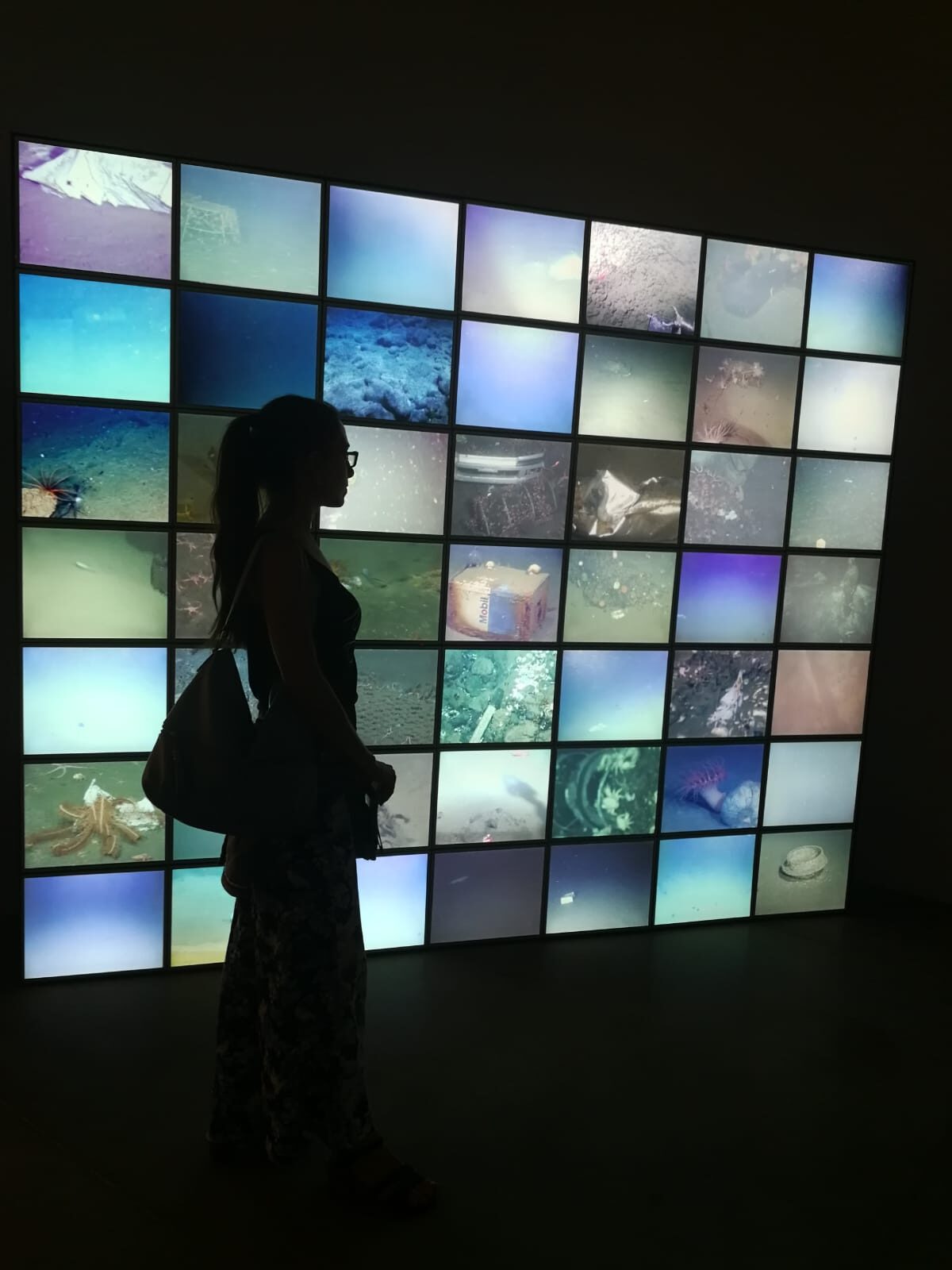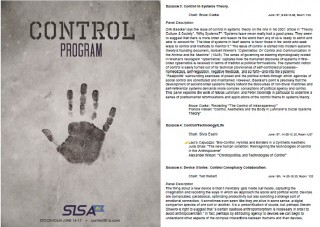The 10th European Society for Literature, Science and the Arts Conference
Control 2016 – Conference Program
Theme: Control
Stockholm June 14-17, 2016
Home page: http://control2016.com
BIO- CONTROL. HYBRIDS AND BORDERS IN A SYNTHETIC AESTHETIC
by Laura Capuozzo
Abstract:
“New age positivism driven by the common belief that technology will ultimately save all us…”(Geert Lovink). From this perspective starts, in the modern era, the interpretation of technology as a growth promoter of the industrial production. Synthetic biology and 3d printing developments enable artists, engineers, scientists, to re-design ‘biological systems’ in a rational and systematic way. The trans-medial crossover of these experiences emphasizes a floating hybridization between organic and inorganic realm, wet and dry aspects of life. New hybrid, organic, open-source materials opens to sociological and ethical issues about the material culture in the digital age. If we can “program” the structure of the Life according to industrial, political and economic needs, there is no longer only chance to “keep alive or repel in death” (Focault). The “transhuman”, the blurring of boundaries between living and non-living systems and the spectre of eugenic selection or manipulation are the most worrying developments of these practices. In the current context, biopolitics – as an expression of the close relationship between science and political economy – should consider the risk of a takeover of the biological status of life. The control of living being and its manipulation underlines the need to for an “ethics of the form” – that means also to have a “long-term wisdom” about the results of the production technology and process.
—————————————
From the Call for Abstract os SLSA:
CONTROL, in its most general definition, refers to a set of mechanisms used to influence, direct, or restrict people, organisms, processes, systems, motions, and behaviors. It can also refer to tools employed to enforce such mechanisms. On a fundamental level, this general definition is already political as it pertains to ways in which power informs modes of functioning in accordance with what are inevitably social, cultural, and economic conditions and norms. A first starting point of the SLSAeu conference in Stockholm in 2016 is the underlining of this inevitably political dimension of control.
While control in its most general sense is an inevitable part of group mechanics, and while the birth of biopolitics at the “threshold of modernity” made politics itself a matter of controlling and modifying life processes, it seems evident that a whole string of developments over the last few decades have given birth to new modes of control. For example, ways of influencing, directing, and restricting human and nonhuman animals, organisms, processes, systems, motions, and behaviors change alongside developments in technology and science, in modes of production, in the globalization of neoliberal capitalism, and in geopolitical and postcolonial processes. A second starting point of this conference is an interest in these changing modes of political control.
Since contemporary modes of control make it possible to influence all levels and forms of life, the spectrum under discussion reaches from laboratories experimenting with stem cells and live tissue, to media representations of war and climate change, to enactments and discourses of security, to the policing of borders and migration, to mention a very few. A third starting point of the conference is, therefore, a concern with the necessity of exploring political control across a wide range of instantiations.
Literature, science, and the arts offer many different perspectives on control. Their representations, experimentations, and expressions constitute examples of as well as challenges to various mechanisms of control. A fourth starting point of the conference, then, is the intimate relation between culture and control and the eagerness to explore the role of various modes of expression in what some now call control society.
In short, then, SLSAeu in Stockholm in 2016 explores developments in political control from a number of different perspectives by investigating the role of literature, science, and the arts in control society. Papers will be organised in accordance with a select number of streams.
Keynote Speakers:
Mieke Bal (University of Amsterdam), Lauren Berlant (University of Chicago),
Michael Dillon (Lancaster University), Alexander Galloway (New York University),
Steven Hinchliffe (University of Exeter)
While the birth of biopolitics at the “threshold of modernity” made politics itself a matter of controlling and modifying life processes, it seems evident that a whole string of developments over the last few decades have given birth to new modes of control. For example, ways of influencing, shaping, directing, and restricting human and nonhuman animals, organisms, processes, systems, motions, and behaviors change alongside developments in technology and science, in modes of production, in the globalization of neoliberal capitalism, and in geopolitical and postcolonial processes. Since contemporary modes of control make it possible to influence all levels and forms of life, the spectrum under discussion reaches from laboratories experimenting with stem cells and live tissue, to media representations of war and climate change, to enactments and discourses of security, to the policing of borders and migration, to mention a very few. The representations, experimentations, and expressions of literature, science, and the arts provide examples of as well as challenges to the various mechanisms of control. The notion of control in relation to topics such as:
* security, including biopolitical-, climate-, food-, and human security, surveillance, digitalization and debt as a mode of governance.
* borders, including the history of borders; migration, diaspora and borders; the precariat in and outside the nation; borders between the human and non-human.
* war, including the political, cultural, juridical and philosophical stakes of the role of techno-science, visual culture and hyper-communication.
* climate, including the affective, technological and political gymnastics of climate control as well as the fascination with that which escapes prediction and preparation.
* life, on the verge of extinction and in the shadow of the Anthropocene, including life as the limit of control, as uncontainable, excessive, recalcitrant, and insistent.
* animals, including animal agency; intersectional approaches to species, gender, race and more; animal spaces and place-making; animal representations.
* bacteria, including theoretical, literary, and artistic engagements with the relationship between humans and the microbial world.
* desire, including the link between control-desire and: the media; gender; sexuality; pleasure; private/public; agency/passivity; and the beauty industry.

![sls_eu_color_v2[1]](http://control2016.com/wp-content/uploads/2015/06/sls_eu_color_v21-744x372.jpg)

